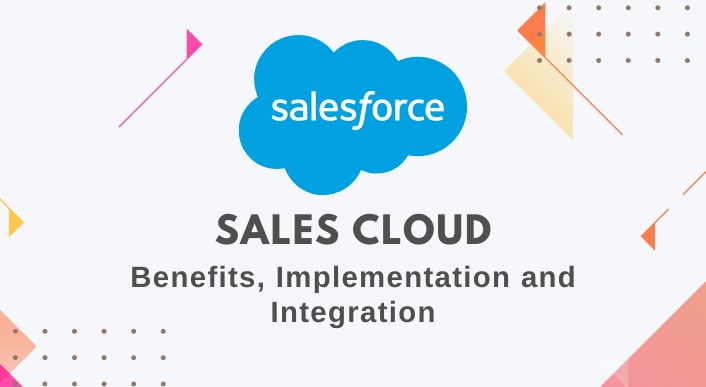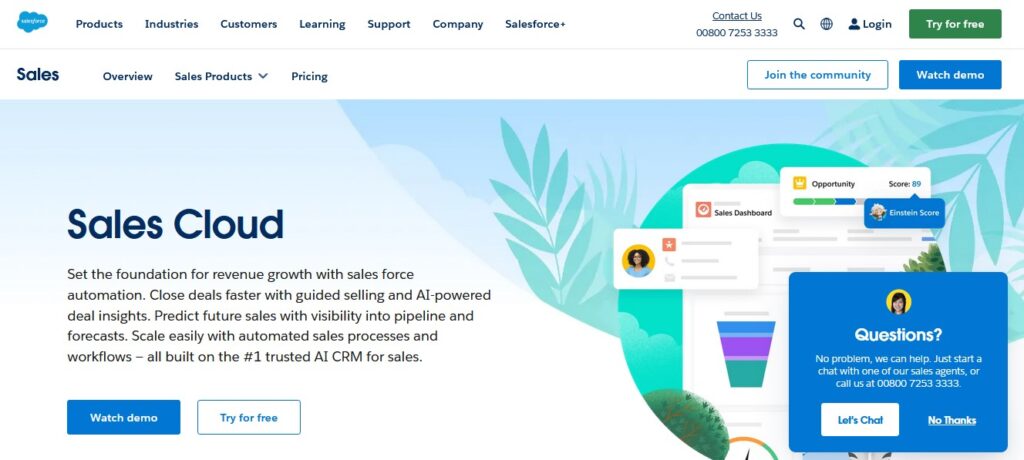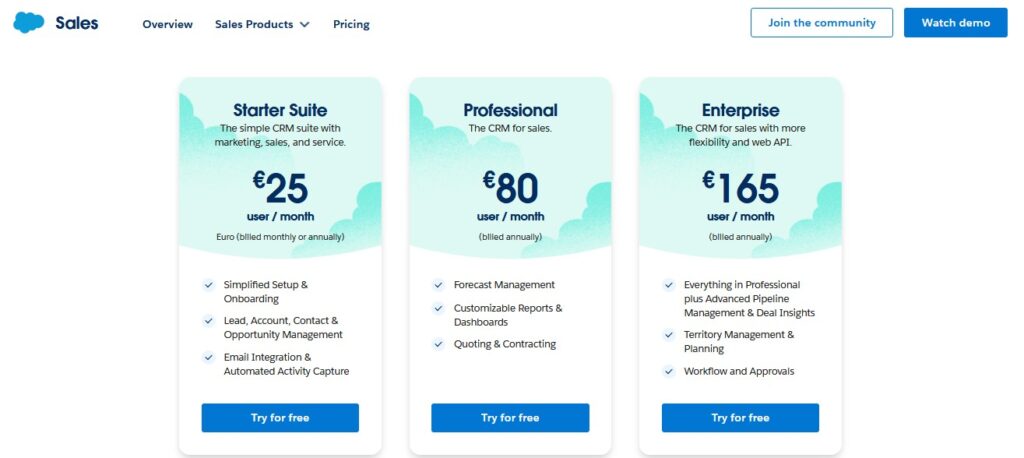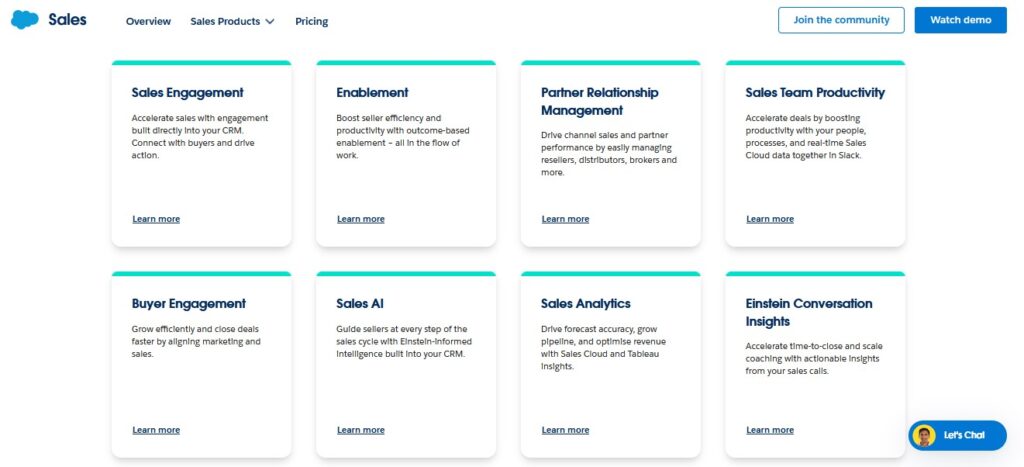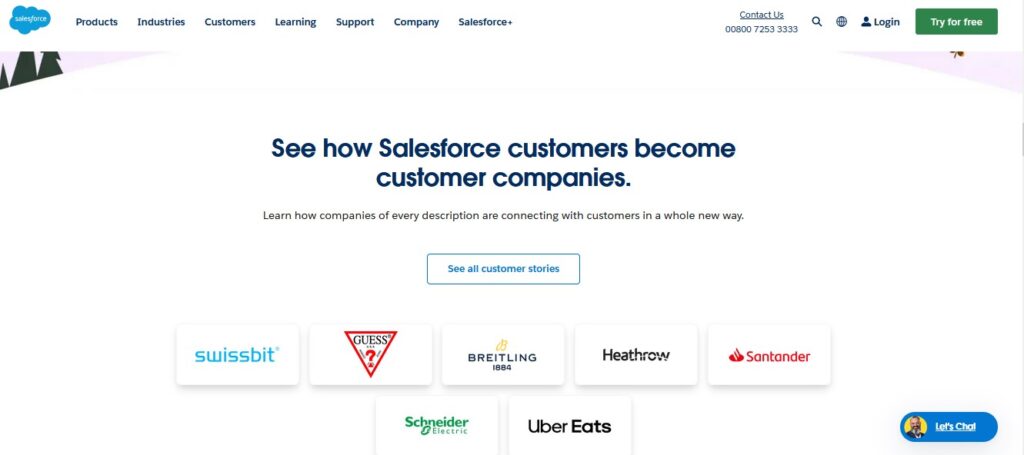Salesforce Sales Cloud is a powerful tool that offers a range of pricing options, features, and reviews to help businesses optimize their sales processes. The pricing structure for Salesforce Sales Cloud varies depending on the specific needs and size of the organization. Small businesses may opt for the Essentials plan, which provides basic sales and customer management tools at an affordable monthly rate. On the other hand, larger enterprises can choose from Professional, Enterprise, or Unlimited plans to access more advanced features and customization options.
One of the standout features of Salesforce Sales Cloud is its robust set of tools for managing leads, contacts, opportunities, and accounts. The platform also integrates seamlessly with other Salesforce products like Marketing Cloud and Service Cloud to provide a comprehensive solution for customer relationship management. Additionally, users can take advantage of AI-powered insights and analytics to make data-driven decisions that drive sales performance. Customer reviews often highlight the user-friendly interface and extensive customizability as key strengths of Salesforce Sales Cloud.
While Salesforce Sales Cloud is widely regarded as a leading CRM solution, there are alternative options available in the market that cater to different business needs. For instance, HubSpot CRM offers a free version with basic features suitable for small businesses looking to get started with CRM software. Similarly, Zoho CRM provides a cost-effective alternative with strong workflow automation capabilities. Evaluating these alternatives alongside Salesforce Sales Cloud can help organizations make an informed decision based on their specific requirements and budget constraints.
Salesforce Sales Cloud Overview and Importance
Salesforce Sales Cloud is a powerful customer relationship management (CRM) platform that has revolutionized the way businesses manage their sales processes. One of its key features is the ability to track and manage customer interactions, from initial contact to closing the deal. This allows sales teams to better understand their customers’ needs and preferences, leading to more personalized and effective sales strategies. Additionally, Salesforce Sales Cloud offers advanced analytics tools that provide valuable insights into sales performance, helping businesses identify trends and opportunities for growth.
Moreover, Sales Cloud’s integration with other Salesforce products like Marketing Cloud and Service Cloud enables a seamless flow of data across departments, creating a unified view of each customer. This not only improves collaboration between teams but also enhances the overall customer experience. Furthermore, the platform’s mobile capabilities allow sales professionals to access critical information on-the-go, ensuring they are always equipped to engage with clients effectively. In today’s competitive market, where customers expect personalized experiences and efficient service, having a robust CRM system like Salesforce Sales Cloud is crucial for businesses looking to stay ahead of the curve.
In conclusion, Salesforce Sales Cloud provides an all-encompassing solution for managing sales processes and nurturing relationships with customers. Its comprehensive set of features empowers organizations to streamline their sales operations while delivering exceptional customer experiences. As businesses continue to prioritize data-driven decision-making and personalized engagement strategies, investing in a CRM platform like Salesforce Sales Cloud has become imperative for sustainable growth and success in today’s dynamic marketplace.
Salesforce Sales Cloud is a powerful customer relationship management (CRM) platform designed to help businesses manage their sales processes more effectively. It provides a comprehensive set of tools for managing leads, opportunities, contacts, and accounts, as well as tracking sales activities and forecasting sales performance. The Sales Cloud also includes features for automating tasks, creating personalized marketing campaigns, and generating insightful reports to drive better decision-making.
The importance of Salesforce Sales Cloud lies in its ability to streamline the sales process, improve collaboration among sales teams, and provide valuable insights into customer behavior and preferences. By centralizing customer data and interactions in one place, businesses can gain a 360-degree view of their customers and deliver more personalized experiences. Additionally, the platform’s mobile capabilities enable sales professionals to access critical information on the go, empowering them to be more productive and responsive to customer needs. Overall, Salesforce Sales Cloud plays a crucial role in driving sales efficiency, enhancing customer relationships, and ultimately driving business growth.
Pricing: Salesforce Sales Cloud pricing plans breakdown
Salesforce Sales Cloud offers a variety of pricing plans to suit the needs of different businesses. The most basic plan is the Essentials plan, which is designed for small businesses and includes core CRM functionality such as contact management and opportunity tracking. The next step up is the Professional plan, which adds features like mass email, lead scoring, and forecasting.
For larger businesses with more complex needs, there’s the Enterprise plan, offering advanced customization and integration options, as well as access to more powerful analytics tools. Finally, the Unlimited plan provides the highest level of support and customization options, along with additional storage and sandbox environments for development and testing. It’s important to carefully consider your business requirements and budget when choosing a pricing plan, as each one offers different levels of functionality and support.
As a small business owner, I have always been on the lookout for cost-effective and efficient tools to help me manage my sales processes. When I first started researching CRM options, Salesforce Sales Cloud immediately caught my attention due to its robust features and reputation in the industry. However, what really sealed the deal for me was the pricing transparency that Salesforce offers through its detailed pricing plans breakdown. The clear and comprehensive breakdown of pricing options allowed me to make an informed decision based on my business needs and budget.
Salesforce Sales Cloud offers three main pricing plans: Essentials, Professional, and Enterprise. Each plan is tailored to cater to different business sizes and requirements. The Essentials plan is perfect for small businesses just starting with basic CRM needs, while the Professional plan includes more advanced features suitable for growing businesses looking to scale their sales operations. Finally, the Enterprise plan is designed for large organizations with complex sales processes requiring extensive customization and support. Understanding these distinct pricing tiers helped me identify which plan aligned best with my current stage of business growth.
The detailed breakdown of each pricing plan also provided insights into additional costs such as add-ons or user licenses, allowing me to anticipate any potential future expenses as my business expands. This level of transparency instilled a sense of trust in Salesforce’s commitment to helping businesses succeed by offering flexible and adaptable solutions at every stage of their growth journey.
Features: Key features of Salesforce Sales Cloud
Salesforce Sales Cloud is a powerful customer relationship management (CRM) tool that offers a wide range of key features designed to enhance sales processes and improve customer interactions. One of the most notable features of Sales Cloud is its comprehensive lead management capabilities, enabling users to track and manage leads throughout the entire sales cycle. This feature allows for better qualification and prioritization of leads, ultimately leading to higher conversion rates and improved sales performance. Additionally, Salesforce Sales Cloud provides robust opportunity management tools, allowing sales teams to effectively manage and track all aspects of their deals, including key contacts, next steps, and potential revenue.
Another key feature of Salesforce Sales Cloud is its seamless integration with other Salesforce products and third-party applications. This enables users to leverage a wide range of additional tools and resources within the Salesforce ecosystem, streamlining processes and improving overall productivity. Furthermore, Sales Cloud offers advanced reporting and analytics features that provide valuable insights into sales performance, pipeline health, and customer behavior. These tools enable businesses to make data-driven decisions, identify trends, and optimize their sales strategies for maximum impact.
In conclusion, Salesforce Sales Cloud’s key features cater to the essential needs of modern businesses by providing comprehensive lead management capabilities for better lead tracking as well as seamless integration with other platforms empowering organizations with advanced reporting & analytics capabilities for data-driven decisions leading up to a more efficient CRM solution enabling high productivity in today’s competitive market.
Salesforce Sales Cloud offers a comprehensive set of features designed to streamline and optimize the sales process. One key feature is the ability to manage leads and opportunities, allowing sales teams to track and prioritize their prospects effectively. The platform also provides robust reporting and analytics tools, enabling users to gain valuable insights into their sales performance and make data-driven decisions.
Another important feature of Salesforce Sales Cloud is its integration with other Salesforce products, such as Service Cloud and Marketing Cloud, creating a seamless experience across different departments. Additionally, the platform offers customizable dashboards and workflows, empowering users to tailor their sales processes to fit their specific needs. Overall, Salesforce Sales Cloud provides a powerful suite of features that can help businesses drive sales efficiency and effectiveness.
Reviews: User and expert reviews of Salesforce Sales Cloud
Salesforce Sales Cloud has received positive reviews from both users and experts. Users have praised its user-friendly interface, customizable features, and seamless integration with other Salesforce products. Many have highlighted its ability to streamline sales processes, improve collaboration among team members, and provide valuable insights through its reporting and analytics capabilities.
Expert reviews have also been favorable, with many industry analysts acknowledging Salesforce Sales Cloud as a leading solution in the CRM space. Its robust set of features, scalability, and strong customer support have been noted as key strengths. Additionally, experts have emphasized the platform’s continuous innovation and updates to meet the evolving needs of sales teams in various industries. Overall, both user and expert reviews underscore Salesforce Sales Cloud as a top choice for organizations looking to enhance their sales operations and drive business growth.
As a sales professional, I have relied heavily on user and expert reviews when considering which software to implement for my team. Salesforce Sales Cloud has been a top contender in terms of CRM solutions, and the reviews have played a crucial role in my decision-making process. User reviews provide valuable insights into the day-to-day functionality of Sales Cloud, allowing me to understand how it aligns with the needs of my team and business goals. The firsthand experiences shared by other users have given me confidence in the platform’s usability and effectiveness.
In addition to user reviews, expert opinions have provided a deeper understanding of Sales Cloud’s capabilities and potential impact on our sales operations. Experts often highlight key features that may not be immediately apparent from surface-level exploration of the software. These insights help me envision how Sales Cloud can streamline our sales processes, improve customer relationships, and ultimately drive revenue growth. By leveraging both user and expert reviews, I’m able to make a well-informed decision that takes into account real-world experiences as well as industry expertise.
In conclusion, user and expert reviews are invaluable resources when evaluating Salesforce Sales Cloud or any other business software solution. The combination of user feedback with expert analysis provides a comprehensive view that informs my decision-making process as I seek to enhance our sales operations through technology. Ultimately, these reviews not only guide me towards making an informed choice but also validate my confidence in selecting Salesforce Sales Cloud as our CRM solution for driving sustainable growth within our organization.
Alternatives: Competing sales management software options
When it comes to choosing sales management software, the array of options can be overwhelming. One popular choice is CRM (customer relationship management) software, which offers a range of features to help businesses track and manage their interactions with clients. Some well-known CRM options include Salesforce, HubSpot, and Zoho CRM. Each of these platforms offers unique features and benefits, making the decision-making process even more complex.
Salesforce is a widely-used CRM system that boasts advanced customization options and extensive integrations with other business tools. On the other hand, HubSpot’s CRM is known for its user-friendly interface and inbound marketing capabilities, making it a great choice for smaller businesses looking to streamline their sales processes. Zoho CRM stands out with its affordable pricing and comprehensive suite of sales automation tools. Ultimately, the decision regarding which option to choose comes down to each business’s specific needs, budget constraints, and existing technology stack. Considering factors such as ease of use, scalability potential, customer support quality, and integration capabilities can help in selecting the most suitable option for one’s business needs.
Conclusion
In conclusion, Salesforce Sales Cloud stands out as a powerful and versatile tool for streamlining sales processes and enhancing customer relationships. With its robust features, customizable interface, and seamless integration with other Salesforce products, Sales Cloud offers a comprehensive solution for businesses of all sizes. The platform’s pricing structure may seem daunting at first glance, but the value it brings in terms of improving sales efficiency and driving revenue growth cannot be overstated.
As we’ve explored the pricing, features, reviews, and alternatives to Salesforce Sales Cloud, it’s clear that this CRM system has earned its reputation as a leader in the industry. However, it’s also important for businesses to carefully consider their unique needs before committing to any CRM solution. While Sales Cloud is a top-tier choice for many organizations, there are alternative platforms worth exploring that may better align with specific requirements or budget constraints. Ultimately, making an informed decision based on thorough research and understanding of your business objectives is key to maximizing the benefits of any CRM investment.
